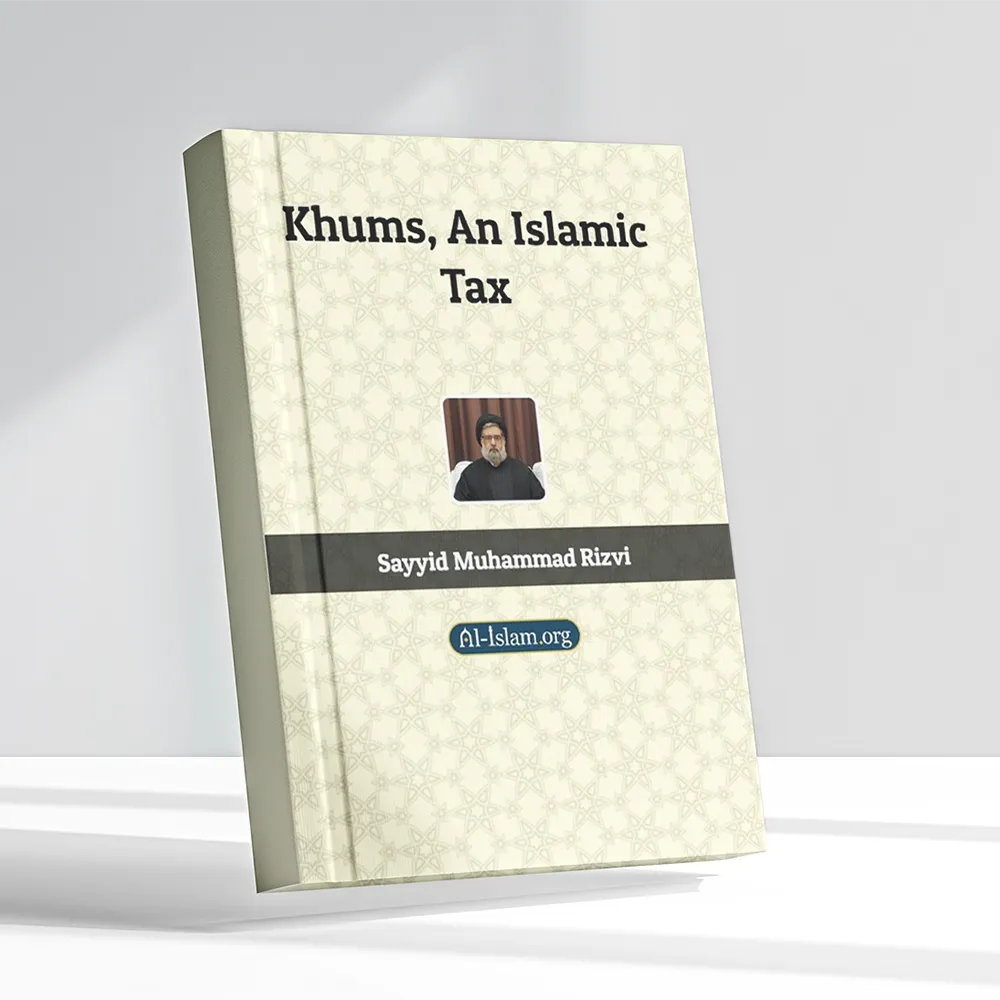Introduction to Khums: An Islamic Tax
Introduction to “Khums: An Islamic Tax” by Sayyid Muhammad Rizvi
Islamic teachings place significant emphasis on social justice, ethical wealth distribution, and caring for the less fortunate in society. Among the various mechanisms to ensure fairness and balance in wealth is the concept of Khums, which, in its simplest terms, refers to an obligatory tax on certain kinds of income, particularly profits and gains. Khums literally means “one-fifth,” and in the Islamic legal framework, it requires Muslims to pay 20% of specific forms of income toward designated causes. This practice is essential in the Shia tradition and plays a crucial role in the economic system envisioned by Islam.
The book “Khums: An Islamic Tax” by Sayyid Muhammad Rizvi provides an in-depth examination of this fundamental Islamic obligation. First published in the 1980s, this text continues to be a comprehensive resource for understanding the origins, purpose, and application of Khums in today’s world. Sayyid Rizvi’s scholarly approach, combined with his ability to explain complex Islamic jurisprudence in an accessible way, makes this book a valuable guide for both scholars and laypeople alike.
A Comprehensive Overview of Khums
The book begins by exploring the foundation of Khums in the Qur’an and the traditions of the Prophet Muhammad (PBUH) and his family. Sayyid Rizvi highlights key verses from the Qur’an, such as the famous verse of Khums (Surah Al-Anfal, 8:41), which establishes this tax as an integral aspect of Islamic financial duties. He also delves into historical precedents, showing how Khums was practiced during the early Islamic period and how it has been upheld by Islamic jurists through the centuries.
A major strength of the book is its detailed explanation of the legal parameters surrounding Khums. Rizvi outlines what qualifies as taxable under Khums, such as business profits, unused savings, and certain forms of discovered wealth. He also discusses the beneficiaries of Khums, dividing them into two main categories: the Sahm-e-Imam (the share designated for the current Imam) and Sahm-e-Sadaat (the share for the descendants of the Prophet).
Why This Book Matters
“Khums: An Islamic Tax” is not merely a legalistic guide to Islamic taxation; it is a work that ties religious obligation to social consciousness. Sayyid Rizvi reminds readers that wealth in Islam is a trust from God, and those blessed with abundance have a duty to distribute it fairly. By doing so, Khums ensures that resources flow back into the community, supporting both religious institutions and the underprivileged.
This book is essential reading for those looking to deepen their understanding of Islamic economics and financial ethics. It serves as both a practical guide for Muslims who wish to fulfil their religious duties and a theological text that highlights the profound moral underpinnings of the Khums system.
In an era where economic inequality continues to rise globally, the principles discussed in “Khums: An Islamic Tax” remain incredibly relevant. Sayyid Rizvi’s work calls for a rethinking of how we perceive wealth, poverty, and our responsibilities toward each other. By embracing the spirit of Khums, Muslims can contribute to a more just and compassionate world.
Furthermore, the book engages with common questions and concerns about Khums, such as is it a charity or a duty, do others also give Khums, and Khums Dependency Syndrome. By framing Khums not merely as a financial duty but as a spiritual and ethical responsibility, Rizvi underscores its role in building a just and equitable society.
editor's pick
news via inbox
Subscribe to the newsletter.




